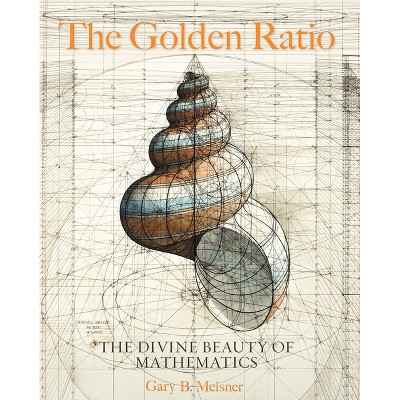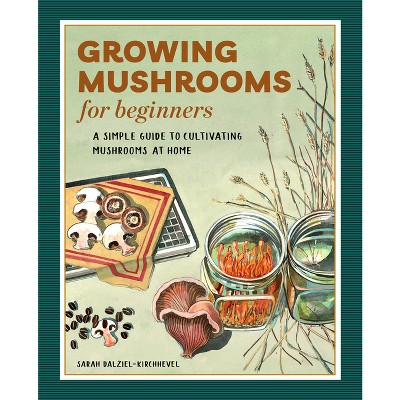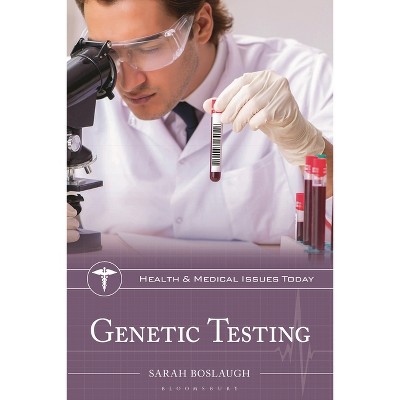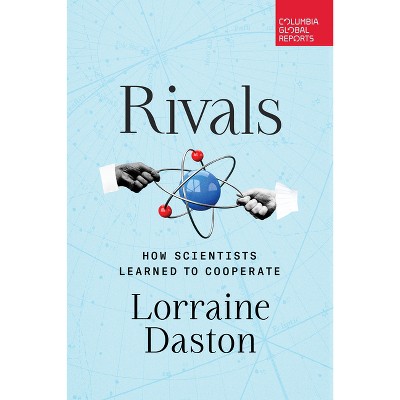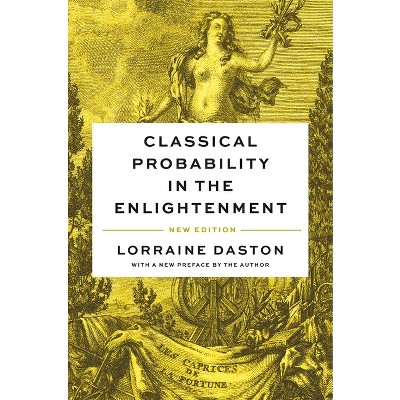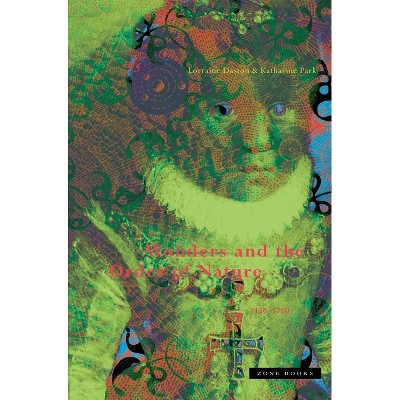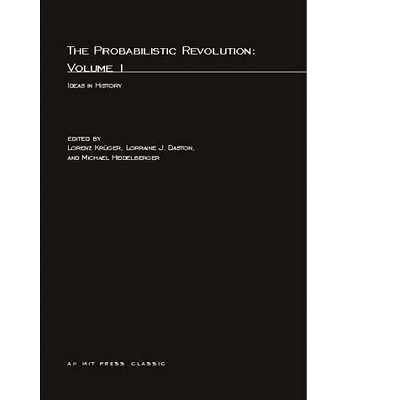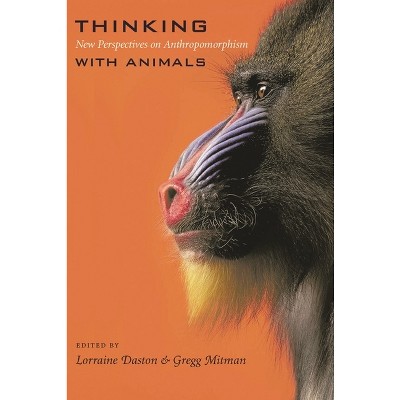Sponsored

Science in the Archives - by Lorraine Daston (Paperback)
$40.00
In Stock
Eligible for registries and wish lists
Sponsored
About this item
Highlights
- Archives bring to mind rooms filled with old papers and dusty artifacts.
- About the Author: Lorraine Daston is director of the Max Planck Institute for the History of Science in Berlin and is visiting professor in the Committee on Social Thought at the University of Chicago.
- 392 Pages
- Science, History
Description
About the Book
"Science in the Archives" reveals affinities and continuities among the sciences of the archives, across many disciplines and centuries, in order to present a better picture of essential archival practices and, thereby, the meaning of science. For in both the natural and human sciences, archives of the most diverse forms make cumulative, collective knowledge possible. Yet in contrast to laboratories, observatories, or the field, archives have yet to be studied across the board as central sites of science. The volume covers episodes in the history of astronomy, geology, genetics, classical philology, climatology, history, medicine, and ancient natural philosophy, as well as fundamental practices such as collecting, retrieval strategies, and data mining. The time frame spans doxology in Greco-Roman antiquity to NSA surveillance techniques and the quantified-self movement. Each chapter explores the practices, politics, economics, and open-ended potential of the sciences of the archives, making this the first book devoted to the role of archives in the natural and human sciences.Book Synopsis
Archives bring to mind rooms filled with old papers and dusty artifacts. But for scientists, the detritus of the past can be a treasure trove of material vital to present and future research: fossils collected by geologists; data banks assembled by geneticists; weather diaries trawled by climate scientists; libraries visited by historians. These are the vital collections, assembled and maintained over decades, centuries, and even millennia, which define the sciences of the archives. With Science in the Archives, Lorraine Daston and her co-authors offer the first study of the important role that these archives play in the natural and human sciences. Reaching across disciplines and centuries, contributors cover episodes in the history of astronomy, geology, genetics, philology, climatology, medicine, and more-as well as fundamental practices such as collecting, retrieval, and data mining. Chapters cover topics ranging from doxology in Greco-Roman Antiquity to NSA surveillance techniques of the twenty-first century. Thoroughly exploring the practices, politics, economics, and potential of the sciences of the archives, this volume reveals the essential historical dimension of the sciences, while also adding a much-needed long--term perspective to contemporary debates over the uses of Big Data in science.Review Quotes
"Science in the Archives achieves startling coherence despite its enormous range. The science at stake embraces varieties of knowledge making that include scientific disciplines like genetics, astronomy, and climatology, yet that also reach back to Antiquity and forward to the databases of today. Each of the twelve chapters argues a different case, together unfolding the crucial generative power of archival practice. This volume--rich, rigorous--should be required reading for anyone who thinks the sciences and the humanities are really distinct domains."-- "Lisa Gitelman, New York University"
"engaging and accessible . . . these essays cover a wide range of disciplines and eras: from the aforementioned ancient astronomical records to Victorian medical case histories to contemporary data mining. Science in the Archives nonetheless manages to achieve thematic coherence by focusing readers' attention on the ways in which scientific knowledge continually evolves amid a constant flux of tools, techniques, and scientific traditions."-- "Isis"
"Ambitiously innovative . . . Science in the Archives is the fruit of a working group at the Max Planck Institute for the History of Science in Berlin. It assembles the diverse thinking of scholars who come from different directions yet animated by a shared curiosity in archives as material things, created with effort, and engendering repeated questioning, in some cases over hundreds of years."-- "Studies in History and Philosophy of Biology & Biomedical Science"
"I found it illuminating to recognize, gradually, the subtle connections that link these diverse papers. The experience of the reader recapitulates, in a way, the process of production. Daston's technique is to choose an open-ended subject, then to bring together about a dozen original scholars with diverse interests and let them gradually settle on their individual topics. The resources of the Max Planck Institute enable them to meet together several times over a few years, and the looseness or contestability of the framing stimulates them to think through their topics in relation to one another, without seeking a tight consensus even on definitions."-- "Journal of Modern History"
"Renowned historian of science Daston and her line-up of stellar scholars show that how data and information are organized is part of the scientific process. This essential book traces how archives provided crucial support to the process of creating scientific data."-- "Jacob Soll, University of Southern California"
"The twelve essays in this elegantly crafted volume explore, as editor Lorraine Daston puts it, 'how the sciences choose to remember past findings and plan future research.' They look at ways in which scholars have preserved and ordered scientific knowledge from antiquity to the present....[T]he book raises important historical questions about how scholars know what has been done in the past, incorporate it into their own work, share it with others, and plan to preserve it for the future. At the same time, it offers intriguing insights into the practice of scholarly communities over a wide swathe of western history and a model of individual papers transformed into a coherent and readable whole."-- "Mathematical Association of America"
"This pathbreaking book brilliantly illuminates how scientific work consistently relies on the making and keeping of records. Twelve richly researched studies highlight long continuities in the hopes and resources invested in archiving of scientific research for current and future use."-- "Ann Blair, Harvard University"
"This volume's articles deal with historically universal problems of accumulation, preservation, management, interpretation, and dissemination of data. The articles explore how stores of observations were used in the past and contemplate present techniques for retrieving electronic information. Additionally, the articles consider the types of documents in which knowledge was recorded, and evaluate the consequences of 'data deluge.' Political controversies have arisen over how data is gathered and analyzed, perhaps particularly in those disciplines in which the science is its archive, such as evolutionary genetics and climatology. Ownership of information and access to evidence are perennial dilemmas. Most authors focus on the biological sciences, although astronomy and paleontology are also addressed. Like editor Daston, director of the Max Planck Institute for the History of Science in Berlin, the contributors are experienced and well-regarded historians of science. While the text is likely of most interest to researchers or readers of works such as Ann Blair's Too Much to Know, this reviewer can see herself using parts of this collection in a historiography class, together with a textbook such as John Tosh's The Pursuit of History, now in its sixth edition, or The Houses of History, edited by Anna Green and Kathleen Troup. Recommended."-- "Choice"
About the Author
Lorraine Daston is director of the Max Planck Institute for the History of Science in Berlin and is visiting professor in the Committee on Social Thought at the University of Chicago.Dimensions (Overall): 8.9 Inches (H) x 6.0 Inches (W) x 1.1 Inches (D)
Weight: 1.25 Pounds
Suggested Age: 22 Years and Up
Number of Pages: 392
Genre: Science
Sub-Genre: History
Publisher: University of Chicago Press
Format: Paperback
Author: Lorraine Daston
Language: English
Street Date: April 4, 2017
TCIN: 1006094100
UPC: 9780226432366
Item Number (DPCI): 247-35-4306
Origin: Made in the USA or Imported
If the item details aren’t accurate or complete, we want to know about it.
Shipping details
Estimated ship dimensions: 1.1 inches length x 6 inches width x 8.9 inches height
Estimated ship weight: 1.25 pounds
We regret that this item cannot be shipped to PO Boxes.
This item cannot be shipped to the following locations: American Samoa (see also separate entry under AS), Guam (see also separate entry under GU), Northern Mariana Islands, Puerto Rico (see also separate entry under PR), United States Minor Outlying Islands, Virgin Islands, U.S., APO/FPO
Return details
This item can be returned to any Target store or Target.com.
This item must be returned within 90 days of the date it was purchased in store, shipped, delivered by a Shipt shopper, or made ready for pickup.
See the return policy for complete information.
Frequently bought together
Trending Non-Fiction


$18.28
was $19.58 New lower price
4.7 out of 5 stars with 17 ratings

